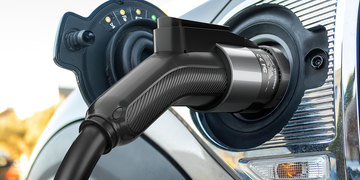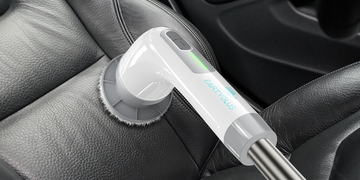Are CCS and J1772 the same? No, CCS (Combined Charging System) and J1772 are not the same; they are two different charging standards used for electric vehicles.
CCS is a charging standard that combines AC and DC charging capabilities, primarily used for high-power DC fast charging. It is commonly deployed in Europe and North America and is designed to support rapid charging for long-distance travel.
On the other hand, J1772 (SAE J1772) is a charging standard developed by the Society of Automotive Engineers (SAE) primarily for AC charging of electric vehicles. It features a single-phase AC connector and is widely used for Level 1 and Level 2 charging, which are typically slower charging methods suitable for residential, workplace, and public charging applications.
While both standards facilitate EV charging, they serve different purposes and cater to distinct segments of the market. CCS is optimized for high-power DC fast charging, while J1772 is more commonly used for AC charging in various settings.
Amidst this diversity, two prominent charging standards have emerged: Combined Charging System (CCS) and J1772. While both aim to facilitate the charging of electric vehicles, they serve different purposes and cater to distinct segments of the EV market. In this article, we delve into the differences between CCS and J1772 to shed light on their respective roles in the EV charging ecosystem.
The CCS connector uses the SAE J1772 charging inlet and adds two more pins below. It “combines” the SAE J1772 connector with the high speed charging pins, which is how it got its name.
CCS (Combined Charging System)
The Combined Charging System, commonly abbreviated as CCS, is a fast-charging standard developed by a consortium of automakers, including European and North American manufacturers. It combines the capability for AC and DC charging, allowing for both slow and rapid charging of electric vehicles. CCS connectors typically feature two additional pins for DC charging, enabling faster charging speeds compared to AC-only charging.
Key features of CCS include:
Compatibility with High-Power Charging: CCS is designed to support high-power DC fast charging, making it suitable for long-distance travel and quick pit stops.
International Adoption: CCS has gained widespread adoption in Europe and North America, with many EV manufacturers offering CCS-compatible vehicles and charging infrastructure expanding rapidly across these regions.
Backward Compatibility: CCS connectors can accommodate AC charging, ensuring backward compatibility with existing AC charging infrastructure and allowing for flexibility in charging options.

J1772
The J1772 standard, also known as SAE J1772, is a charging standard developed by the Society of Automotive Engineers (SAE) primarily for AC charging of electric vehicles. It features a single-phase AC connector and is widely used for Level 1 and Level 2 charging, which are typically slower charging methods suitable for residential, workplace, and public charging applications.
Key features of J1772 include:
Versatility for AC Charging: J1772 connectors are optimized for AC charging, offering compatibility with a wide range of charging stations and electric vehicles.
Common in North America: J1772 is the prevailing charging standard in North America, where it is widely deployed in residential, commercial, and public charging infrastructure.
Standardization: As an SAE standard, J1772 offers a level of standardization and interoperability that ensures compatibility between charging stations and electric vehicles from different manufacturers.
Differences and Applications
While both CCS and J1772 aim to facilitate EV charging, they serve different purposes and cater to distinct segments of the market:
CCS: Primarily used for high-power DC fast charging, CCS is ideal for long-distance travel and rapid charging needs. It is commonly found along highways and major travel routes, enabling EV drivers to recharge quickly during their journeys.
J1772: Designed for AC charging, J1772 is well-suited for residential, workplace, and public charging applications where longer charging times are acceptable. It is commonly used for Level 1 and Level 2 charging, providing convenient charging options for EV owners in various settings.
Are CCS and J1772 the same? CCS and J1772 are two distinct charging standards that play complementary roles in the EV charging ecosystem. While CCS excels in high-power DC fast charging for long-distance travel, J1772 provides versatile AC charging solutions suitable for residential, commercial, and public charging applications. Understanding the differences between these standards is crucial for stakeholders in the EV industry, including automakers, charging infrastructure providers, and EV owners, ng landscape of electric mobility. As the adoption of electric vehicles continues to grow, both CCS and J1772 will play integral roles in shaping the future of EV charging.





